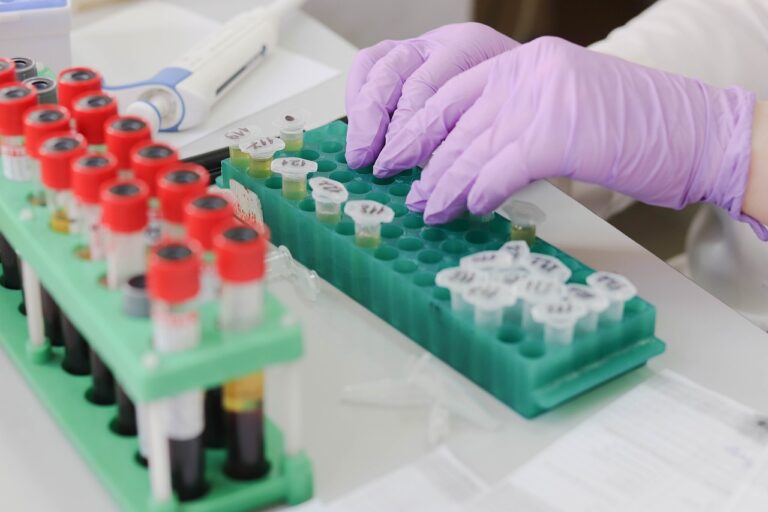Finding the Best IVF Clinic Near You: A Comprehensive Guide
In recent years, the journey to parenthood has taken new paths with the advancement of reproductive technologies. One such method that has transformed countless lives is In Vitro Fertilization, more commonly known as IVF. If you are exploring the option of IVF, one of your first steps is finding the best IVF Clinic Near Me. The quality of care, experience of doctors, and the clinic’s success rates can make a significant difference in your fertility journey.
Understanding IVF
IVF is a medical procedure in which eggs are retrieved from a woman’s ovaries and fertilized by sperm in a laboratory. The fertilized embryo is then transferred into the uterus with the hope of establishing a successful pregnancy. This method is often used by couples who face difficulties with natural conception due to various medical or unexplained reasons.
Some of the common reasons individuals or couples may consider IVF include:
-
Blocked or damaged fallopian tubes
-
Ovulation disorders
-
Male infertility (low sperm count or motility)
-
Endometriosis
-
Unexplained infertility
-
Genetic concerns that may affect the baby
Why Choosing the Right IVF Clinic Matters
Selecting the right IVF clinic is crucial to the success of the procedure. A well-established clinic with experienced professionals can offer higher chances of success, personalized treatment plans, and emotional support throughout the journey.
Key reasons why your choice of clinic matters include:
-
Experience and Expertise: Clinics with seasoned fertility specialists tend to have a deeper understanding of various fertility issues and treatments.
-
Advanced Technology: The availability of modern lab equipment, embryo freezing techniques, and other innovations can impact success.
-
Customized Care: Fertility is a personal journey, and the right clinic will offer tailored treatment based on your health and needs.
-
Emotional and Psychological Support: IVF can be an emotional rollercoaster. Clinics with counseling services and support staff can make the experience more manageable.
Factors to Consider When Looking for an IVF Clinic Near You
Here are the most important factors you should consider when searching for a reliable IVF clinic in your area:
1. Success Rates
While no clinic can guarantee pregnancy, some have higher success rates than others. These numbers can be affected by patient age, medical history, and other variables. Always review clinic-reported success rates with a critical mind, and ask how these rates apply to your personal situation.
2. Qualifications and Credentials
Check the qualifications of the medical team. Fertility specialists should be board-certified and have specific experience in reproductive endocrinology. Lab technicians and embryologists should also be properly trained.
3. Range of Services Offered
A good IVF clinic offers a full spectrum of fertility services, not just IVF. These may include IUI (Intrauterine Insemination), fertility preservation, egg/sperm donation, hormonal evaluations, and genetic testing.
4. Transparency and Communication
The right clinic will be upfront about your chances, the process, and potential risks involved. They should also clearly communicate the number of visits required, the timeline of treatment, and any procedures involved.
5. Ethical Practices
A reputable clinic will follow ethical guidelines and never pressure patients into treatments. They will offer informed consent at every stage and will provide clear options and recommendations.
6. Patient Reviews and Testimonials
Reading real patient experiences can offer insights into what you can expect. Look for reviews that mention the clinic’s professionalism, support system, and the emotional care provided throughout the treatment process.
7. Location and Accessibility
Proximity matters, especially because IVF treatments involve multiple appointments over several weeks. Choosing a clinic nearby or one that’s easy to reach can reduce the stress and fatigue of travel.
8. Cleanliness and Facilities
When visiting a clinic, observe the cleanliness and hygiene practices. A sterile and organized environment reflects professionalism and a high standard of care.
9. Counseling and Support Services
IVF is not just a physical journey, but also an emotional one. Clinics that offer in-house counseling or support groups can help individuals and couples cope with the anxiety, hope, and challenges of fertility treatment.
What to Expect During Your First Visit
During your initial consultation at an IVF clinic, you can expect:
-
A detailed review of your medical and fertility history
-
Physical examinations and diagnostic testing
-
Discussions about possible treatment plans
-
Overview of the IVF process, including steps, success rates, and potential risks
-
A chance to ask any questions or clarify concerns
It’s helpful to write down your questions in advance and take notes during your appointment. Understanding each step of the process will help you make confident, informed decisions.
Lifestyle Changes to Improve IVF Outcomes
While medical treatment is central to IVF, lifestyle also plays a role in success. Here are some changes to consider:
-
Healthy Diet: Consume a balanced diet rich in fruits, vegetables, and lean proteins.
-
Exercise: Light to moderate exercise can improve blood flow and reduce stress.
-
Avoid Smoking and Alcohol: Both negatively affect fertility and pregnancy outcomes.
-
Reduce Stress: Mindfulness, yoga, and therapy can help reduce the emotional burden of treatment.
-
Get Adequate Sleep: Hormonal balance and reproductive health are closely linked to sleep quality.
Red Flags to Watch For
While most IVF clinics are committed to helping patients, you should be cautious if you encounter:
-
Unclear communication or vague answers
-
Promises of guaranteed success
-
Hidden procedures or unexpected charges
-
Pressure to start treatment quickly without proper evaluation
Choosing a clinic that respects your pace and comfort is essential.
Preparing for IVF Emotionally
IVF is not just a medical process; it’s an emotional one. Many individuals experience hope, anxiety, and sometimes disappointment. Emotional preparation can make the journey smoother:
-
Speak with others who have gone through the process
-
Involve your partner or a trusted support person
-
Consider professional counseling if needed
-
Keep realistic expectations and practice self-care
Final Thoughts
IVF is a life-changing journey that can bring hope and joy to individuals and couples longing for a child. Finding the best IVF clinic near you is a critical step, and it’s worth investing time and thought into your decision. Prioritize quality, ethics, and compassionate care. With the right support, knowledge, and medical team, you can take confident steps toward building your family.
Frequently Asked Questions (FAQ)
Q1: What is the success rate of IVF?
The success rate of IVF depends on several factors including age, underlying fertility issues, and the quality of the clinic. On average, younger women tend to have higher success rates. Always ask your clinic about personalized success predictions.
Q2: How long does the IVF process take?
From start to embryo transfer, a typical IVF cycle takes about 4–6 weeks. Additional time may be required for preliminary evaluations and follow-up appointments.
Q3: Is IVF painful?
While some parts of the process, like hormone injections and egg retrieval, may involve mild discomfort, most patients manage well. Clinics often offer support to minimize pain or anxiety.
Q4: How many IVF cycles are usually needed?
Some individuals succeed in the first cycle, while others may need multiple attempts. Every person’s fertility journey is unique.
Q5: Are there side effects of IVF?
Yes. Common side effects include bloating, mood swings, and cramping. In rare cases, ovarian hyperstimulation syndrome (OHSS) may occur. Your doctor will monitor you closely.
Q6: Can I choose to freeze embryos for future use?
Yes. Embryo freezing (cryopreservation) is a common practice. It allows you to use remaining embryos in later cycles or for future family planning.
Q7: How soon can I take a pregnancy test after embryo transfer?
Usually, a blood test is done about 10–14 days after the embryo transfer to confirm pregnancy.
Q8: Can single individuals or same-sex couples undergo IVF?
Yes. Many clinics welcome individuals and couples of all backgrounds and orientations. Donor sperm, eggs, or surrogacy may be part of the plan in such cases.







